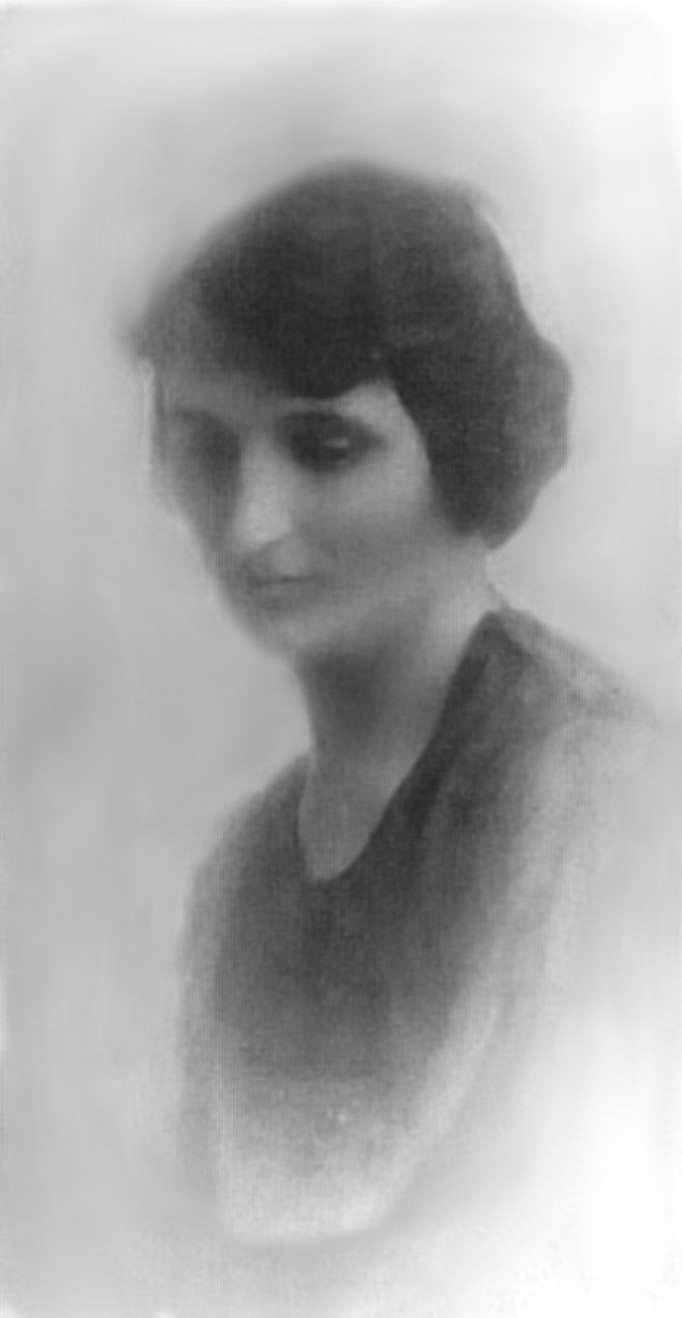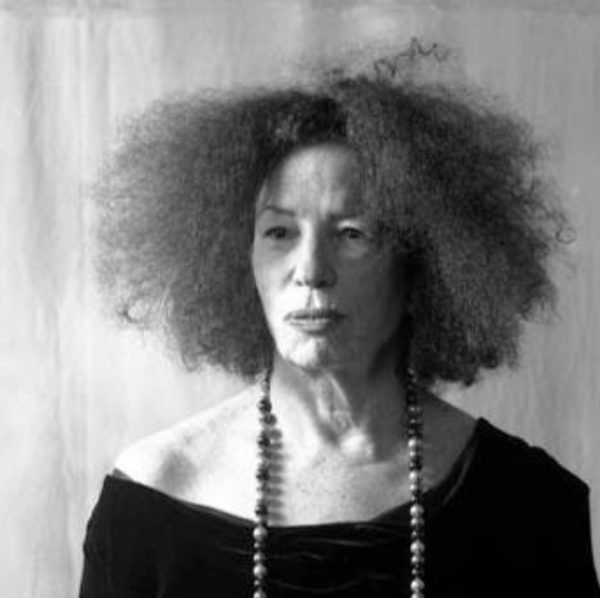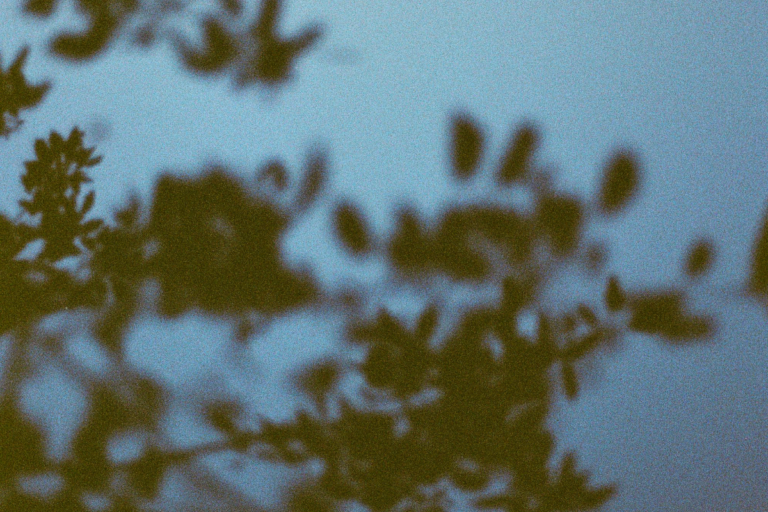
The author's grandmother Anna Sorocer when she emigrated from Rumania to the U.S. Image by Esther Cohen, © All Rights Reserved.
Grandmothers, Mothers, Me
What unites us is that every single one of us — and I really mean every single one of us because it’s one of the few things we have in common no matter what in the world we believe or what we look like or where we come from — is that we all have mothers, complicated mothers who somehow or other got us here to Earth. Those mothers had mothers too.
This fact, this simple basic fact, an indisputable universal truth is still hard to imagine.
My own mother had a mother, my grandmother, and I loved my grandmother more than anyone else who lived on Earth. My grandmother was an exceptionally large-nosed Rumanian named Anna. She was a bejeweled fabulist, a festooned woman with necklaces, large earrings, and infinite pins. She was an immigrant from a town in Rumania that she would describe extravagantly. She was a woman whose life was shaped by being Jewish and by meeting a very handsome man in a line at a bank, a man who she said made her heart beat so fast she couldn’t look away from him. She was 15, he was 10 years older, and her heart, she said, never beat that fast before or after that moment.
He said she was beautiful, and he would take her to America. Until that day she hadn’t known that she was beautiful, Anna Sorocor hadn’t.
My grandfather, she said, had those big, dark eyes that you don’t even see in the movies. So against her family’s wishes she married Shmuel Markovitch, a man she had nothing in common with except an unforgettable glance. But that glance shaped her life.

Not long afterwards, in spite of history and logic she found herself in Grand Forks, North Dakota, with four children and a card-playing good-time husband nothing much like Anna Sorocer. He died when she was in her thirties and there she was, surrounded by farmers and plains and North Dakota. It wasn’t even easy to get sour cream, she said.
When her youngest child, my Aunt Ruthie, got a scholarship to Yale to become a biochemist (this was the ’40s and everyone was so proud of Ruthie), my grandmother and my mother moved to New Haven so Ruthie wouldn’t have to go to college alone.
And my mother got a job working for a washing machine company and met a man there who introduced her to another man named Mike who became my father. They had two children, my brother and me.
We all lived (my grandmother my parents my brother and me) in an apartment with a porch in Ansonia, Connecticut. One day — one of those days you remember forever — my Uncle Alex, my mother’s brother, drove up in a big, gold car. “Come on Ma we’re moving to California,” he said, and in less than a day my grandmother left.
About me, at a party in the same rent-stabilized apartment where I still live so many years later, I in an apartment that is still, a thousand years later, my home, I met Peter, a first-generation Armenian and we, eight years after we met, adopted a baby from Chile one June 29 years ago. We named him Noah.
He, working in his college café as a short order cook, met a woman from Capetown who was at the school for a year. Two years ago they got married in our very same living room. This June, Noah and Chesray will have a baby and I will be her grandmother. And when she asks me, which maybe she will one day, to tell her about families and to tell her how life happens, how we become mothers, if we do, and then how we become grandmothers, if we do, I’ll tell her this very same story.



Share your reflection